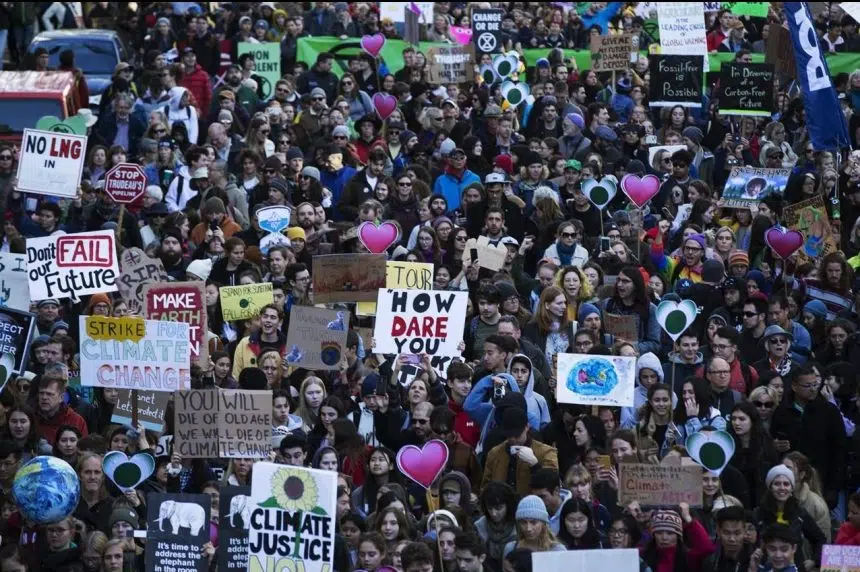An open letter signed by thousands of scientists from around the world may be the clearest demonstration yet of their near-unanimous agreement over the globe’s emerging climate crisis.
Published Tuesday in the journal BioScience, the letter includes 11,258 signatures from 153 countries – including 409 from Canada.
“We declare … clearly and unequivocally that planet Earth is facing a climate emergency,” says the letter’s opening statement.
It’s another example of a growing willingness by scientists to leave their labs in an attempt to persuade the public to take seriously what research is telling them.
“Academic (researchers) have been more involved in visible activism – going to rallies, protesting peacefully,” said Lonnie Aarssen, signatory and longtime biologist at Queen’s University in Kingston, Ont. “That’s definitely ramped up, especially in the last year.”
Scientists at the beginning of their careers feel the same, said Alina Fisher, a signatory and University of Victoria PhD student.
“People do understand (climate change) but they don’t see how it affects them. It’s important for us as scientists to bridge that gap.”
The letter is frank about the consequences.
“The climate crisis is closely linked to excessive consumption of the wealthy lifestyle,” it says. “We must change how we live.”
Energy sources must move beyond carbon. Diets must include less meat.
“Excessive extraction of materials and overexploitation of ecosystems, driven by economic growth, must be quickly curtailed … We must protect and restore Earth’s ecosystems.”
The letter includes 29 simple graphs illustrating everything from atmospheric concentration of greenhouse gases to livestock numbers to extreme weather events and wildfire losses. All back the letter’s urgings.
Bill Ripple, an ecologist at Oregon State University who organized the letter through the Alliance of World Scientists, makes no apologies for its uncompromising tone.
“I’m willing to take the risk to speak out and talk about the implications of the science that we’re seeing and how that could potentially affect the citizens of the Earth,” he said.
“I think we have this obligation. I think this is a major trend.”
It’s tough to move away from the old idea of a scientist as a neutral – and silent – provider of data, said Samantha Andrews, who’s doing her doctorate in marine biology at Memorial University in Newfoundland.
Scientists increasingly feel they don’t have to shut up about what their work means.
“Science in the ivory tower makes no difference,” she said. “And if you’re dealing with things that are important, then we should be speaking out and we shouldn’t be afraid.
“I don’t know how you can be neutral about something like this.”
She points out most science is publicly funded and people have every right to know what their money has uncovered.
Dozens of Canadian scientists have already affixed their names to at least six open letters related to climate change since 2015. They have called for a moratorium on new oilsands mines, changes to the Fisheries Act, an end to liquid natural gas development and for Canadians to consider the issue on election day.
Get used to it, said Egor Katkov, a PhD student in freshwater ecology at McGill University in Montreal.
“Scientists would, under normal circumstances, expect that politicians or government employees consult them if the need arises,” he said in an email. “It is clear that this is not happening and that an intervention … is needed.
“It’s vital to speak out about the ecosystem emergency that is happening around the world.”
Bob Weber, The Canadian Press







